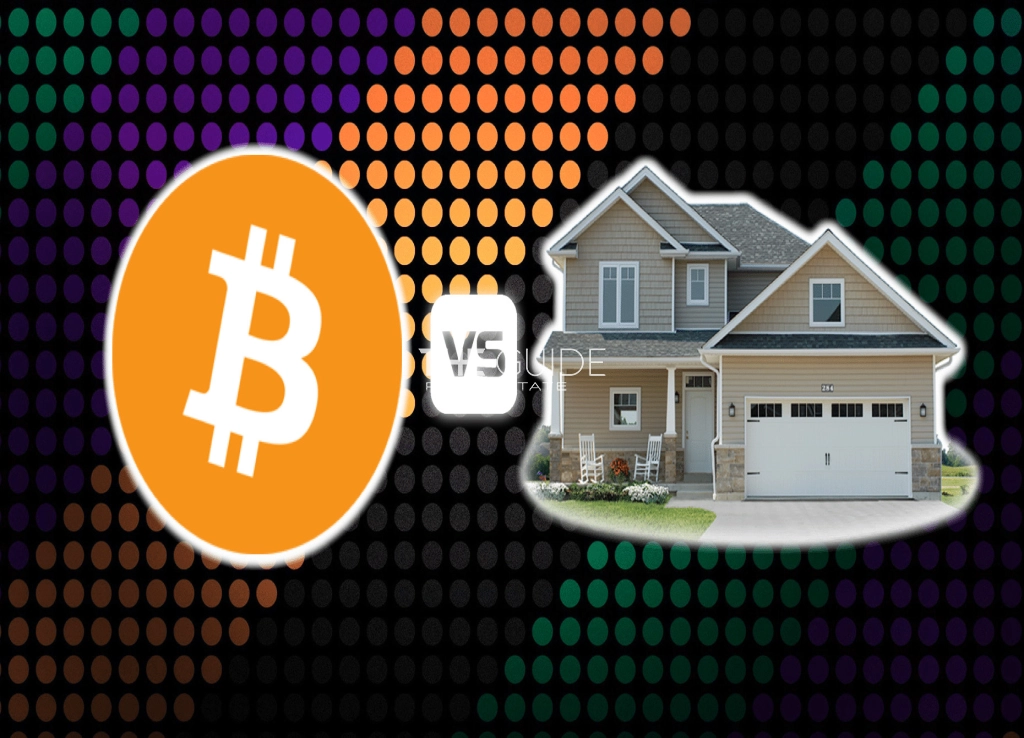Real Estate Versus Cryptocurrency

Cryptocurrency has become impossible to ignore in recent times. Its evolution from the dark web to daily headlines worldwide has captivated the interest of potential investors. However, building wealth and planning for retirement necessitates intelligent investment decisions. There are numerous strategies for diversifying your portfolio and mitigating risk, but when comparing investments in cryptocurrency to investments in real estate, one clearly stands out as the better choice.
Cryptocurrency, as a digital currency, was created as an alternative to fiat currency for purchasing goods and services. Bitcoin, Ethereum, and Dogecoin are among the most recognized and traded digital currencies available. It operates in a decentralized manner, stored in online wallets or popular platforms like Coinbase, without regulation or control by any single entity. With a low barrier to entry, crypto can be purchased for mere pennies or fractions of a coin.
Numerous traditional investors, banks, and institutions are
pushing digital currencies into the mainstream. Household names like PayPal and
JP Morgan are accepting these coins for transactions or incorporating crypto
platforms into their service-based portfolios. The cryptocurrency craze has
even extended to the stock market, with the first Bitcoin ETF debuting on the
New York Stock Exchange in October 2021. What truly draws investors, however,
are the recent exponential gains. Bitcoin hit all-time highs in 2021, reaching
$68,000 in November, marking a 30% increase from May 2021..
These wild swings in value appeal to investors willing to take
on high risks, but they also present significant drawbacks. Many view crypto as
a bubble, purely speculative with no intrinsic value. Unlike traditional
investments, there's no security or insurance for cryptocurrencies; being
digital, they are vulnerable to cyberattacks or the risk of losing your entire
investment due to a forgotten password. Unlike assets such as real estate or
stocks, there are no passive income opportunities like rent or dividends with
crypto.
Furthermore, governments are beginning to take action due to the
unregulated nature of crypto. Calls for regulation regarding the sale,
transfer, and taxation of digital currencies by governments like China have led
to drops in their value.
Historically, real estate has been a reliable and secure method to build wealth. Unlike cryptocurrency, real estate is a tangible asset with intrinsic value. The need for shelter ensures ongoing demand, as people will always require a place to live or work. Real estate can be enhanced through strategic improvements, and it offers potential for passive income through rental returns. Additionally, there are special tax benefits for real estate owners.
However, there are drawbacks, such as the relatively slow
process of liquidating real estate and the necessity for ongoing maintenance.
Nevertheless, these challenges are generally perceived as lower risk compared
to the volatility associated with cryptocurrency.
Real estate offers a tangible asset that can be rented out and typically increases in value over time. There are also numerous tax benefits and incentives associated with real estate ownership that can be leveraged to enhance returns. Additionally, real estate provides a valuable diversification opportunity for your portfolio since it tends to perform independently of the stock market.
Every
investment opportunity comes with its own set of pros and cons. When comparing
crypto to real estate, the choice is clear. Crypto is highly speculative and
extremely volatile. There's a significant risk of losing your entire
investment, as seen with the collapse of the Squid Game coin last month, or
experiencing drastic value swings like Bitcoin did last spring. Unlike stocks,
crypto doesn't pay dividends, and the only way to profit is through capital
appreciation.
On
the other hand, real estate offers more consistent returns, is a tangible
asset, and generally poses less risk. It's a solid investment choice that can
provide stable income through rental returns and potential long-term
appreciation.
Make
the wise choice and explore our portfolio today!
Related Articles
Latest Articles
Rate This Article
Recomended Properties
Astonishing Golden Horn Views Apartment for Sale
Nestled advantageously in the Eyup area, Rams Halic presents an authentic Istanbul experience along the iconic Golden...
New Financial City Apartments for Sale in
Discover Sinpas Finans Sehir, a prestigious project meticulously crafted for those who seek a private sanctuary to...
Luxury Homes for Sale in Istanbul Maslak
Hunting for a home that offers marvelous natural views while letting you stay in the heart of...
Luxurious Prime Located Turkey Properties Seba Central
Seba Central extends a contemporary opportunity for discerning buyers, harmonizing refined living quarters with a productive workspace,...
Luxury Homes for Sale in Istanbul Dap
Dap Yeni Levent presents a peaceful life in the financial hub of Istanbul. With its lush green...
Orman Istanbul Turkish citizenship apartments for sale
Orman Istanbul is a pristine and luxurious project in a beautiful district undergoing urban regeneration. Its features...





